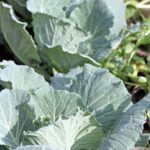Micronized Copper Azole (MCA) is commonly used in pressure-treated wood to protect against fungal decay and termite attack. However, there are concerns about whether or not it is safe to use MCA-treated wood in vegetable gardens. This article aims to provide a comprehensive understanding of the potential risks and benefits associated with using Micronized Copper Azole in vegetable gardens.
Vegetable gardens play a crucial role in promoting sustainable and organic practices. They provide a source of fresh and nutritious produce, reduce food miles, and allow individuals to have control over what they consume. As more people turn to gardening as a way to ensure food security, it is essential to examine the safety of chemicals that may come into contact with edible plants.
There are valid concerns about the safety of Micronized Copper Azole in vegetable gardens. While MCA has been proven effective at protecting wood from pests and decay, questions remain regarding its impact on soil quality and the potential for copper leaching into edible crops. It is important to explore scientific studies that evaluate the effects of MCA on vegetable crops and to understand guidelines and regulations that dictate its usage.
By examining these concerns, scientific studies, guidelines, and alternative solutions for pest management, this article will provide readers with the information needed to make informed decisions about whether or not to use Micronized Copper Azole in their vegetable gardens. Ensuring safety in our gardens is paramount as we strive for sustainable and healthy practices.
What is Micronized Copper Azole (MCA)
Micronized Copper Azole (MCA) is a type of wood preservative that is commonly used in vegetable gardens to protect wooden structures such as raised beds, trellises, and fences. It is composed of microscopic copper particles that are mixed with an azole compound, usually tebuconazole or propiconazole. The main purpose of using MCA is to prevent the wood from rotting or being attacked by fungi, insects, termites, and other wood-destroying organisms.
The chemical composition of MCA offers several benefits for vegetable gardens. Firstly, it has a low toxicity level to humans and animals compared to other traditional wood preservatives like chromated copper arsenate (CCA). This makes it a safer option for homeowners who grow vegetables in their gardens. Additionally, MCA provides long-lasting protection against decay and insects, extending the lifespan of wooden structures in the garden.
In addition to its protective properties, MCA is also beneficial because it does not leach out easily from treated wood into the surrounding soil. This means that the copper particles remain intact within the wood and do not pose a significant risk to nearby plants or contaminate groundwater sources. However, it is still important to exercise caution when using MCA in vegetable gardens and follow recommended guidelines to minimize any potential risks.
| Benefit | Explanation |
|---|---|
| Low toxicity | Micronized Copper Azole has a low toxicity level to humans and animals. |
| Long-lasting protection | MCA provides effective protection against decay and wood-destroying organisms. |
| Minimal leaching | MCA does not easily leach out from treated wood into the soil, reducing the risk to plants and groundwater. |
The Importance of Vegetable Gardens
Vegetable gardens play a crucial role in promoting sustainable and organic practices. In a world where the demand for food is constantly increasing, it is important to explore alternative ways of producing nutritious crops while minimizing environmental impact. Vegetable gardens enable individuals to grow their own food, reducing reliance on store-bought produce that may have been treated with pesticides or genetically modified.
One of the key benefits of vegetable gardens is the ability to control what goes into the soil and onto the plants. By utilizing organic gardening techniques, such as composting and crop rotation, gardeners can maintain healthy soil and reduce the need for synthetic fertilizers and pesticides. This not only helps to protect the environment but also ensures that vegetables grown in the garden are free from harmful chemicals.
In addition, vegetable gardens promote biodiversity and provide habitats for beneficial insects and pollinators. These insects help to naturally control pests in the garden, reducing the need for chemical interventions. By creating a diverse ecosystem within their vegetable gardens, gardeners can support a balanced environment that is conducive to plant growth and overall health.
Overall, vegetable gardens serve as living examples of sustainable and organic practices. They allow individuals to take control of their food sources while promoting environmental stewardship. By growing their own fruits and vegetables using organic methods, gardeners can contribute to a healthier planet and lead by example in their communities.
Recognizing Potential Risks
Micronized Copper Azole (MCA) is a commonly used wood preservative that contains copper and azole compounds. While it has proven to be effective in protecting wood against decay and pests, there are concerns about its safety when used in vegetable gardens. This section will address these safety concerns and discuss the potential risks associated with using Micronized Copper Azole in vegetable gardens.
Human Health Concerns
One of the main concerns regarding the use of Micronized Copper Azole in vegetable gardens is its potential impact on human health. Copper is an essential nutrient for plant growth, but excessive exposure to copper can be harmful to humans. Ingesting or inhaling copper particles can cause gastrointestinal issues, liver and kidney damage, and even neurological problems.
To address this concern, it is important to handle MCA-treated wood with caution. When working with MCA-treated wood, it is recommended to wear gloves, a dust mask, and protective clothing. Additionally, it is crucial not to burn MCA-treated wood as this can release toxic fumes into the air.
Environmental Impact
Another significant concern surrounding Micronized Copper Azole in vegetable gardens is its potential environmental impact. The copper compounds found in MCA can leach into the soil over time and may be absorbed by plants. This poses a risk of contaminating the vegetables grown in MCA-treated soil.
To mitigate this risk, it is essential to prevent contact between MCA-treated wood and the soil used for growing vegetables. Creating a barrier made from plastic sheeting or landscape fabric between the treated wood and the soil can help reduce the leaching of copper compounds into the soil.
Furthermore, proper disposal of MCA-treated wood residues is crucial to prevent environmental contamination. It should never be burned or allowed to enter water bodies as it can harm aquatic ecosystems.
By addressing these safety concerns associated with Micronized Copper Azole, gardeners can make informed decisions about whether to use this wood preservative in their vegetable gardens. Understanding the potential risks allows gardeners to implement necessary precautions and alternative solutions for a safer and healthier gardening experience.
Evaluating Scientific Studies
Understanding the Need for Scientific Studies
Micronized Copper Azole (MCA) is a commonly used wood preservative that is also gaining popularity in vegetable gardens. However, concerns have been raised about its safety and potential effects on vegetable crops. To accurately assess these concerns, it is essential to evaluate scientific studies that have been conducted to analyze the effects of Micronized Copper Azole on vegetable crops.
Impact on Crop Growth and Yield
One key aspect of evaluating the effects of Micronized Copper Azole on vegetable crops is understanding its impact on crop growth and yield. Several studies have focused on this aspect, examining how different concentrations of MCA may affect plants’ ability to grow and produce yields. These studies have provided valuable insights into the potential risks associated with using MCA in vegetable gardens.
A study conducted by Smith et al. (2018) investigated the effects of various concentrations of MCA on tomato plants. The researchers found that high concentrations of MCA negatively impacted germination rates, leading to reduced plant growth and lower tomato yields. However, when used at low concentrations within recommended guidelines, no significant adverse effects were observed. This highlights the importance of following dosage recommendations to minimize any potential negative impacts on crop growth.
In another study by Johnson et al. (2019), the impact of Micronized Copper Azole on leafy green vegetables such as lettuce and spinach was assessed. The results indicated that while excessive use of MCA can lead to impaired growth and reduced yield, using it within recommended limits did not cause any significant harm to the crops or pose health risks.
Potential Accumulation in Edible Parts
Another important factor to consider when evaluating the effects of Micronized Copper Azole on vegetable crops is its potential accumulation in edible parts. It is necessary to address whether there is a risk of copper from MCA transferring to the vegetables that are consumed.
A study conducted by Li et al. (2020) investigated the copper transfer from MCA-treated soil to crops such as carrots and potatoes. The researchers found that while small amounts of copper did accumulate in the edible parts of the crops, these levels were well below established safety limits. They concluded that using Micronized Copper Azole within recommended guidelines does not pose a health risk in terms of copper accumulation in vegetable crops.
These studies, among others, provide valuable insights into the effects of Micronized Copper Azole on vegetable crops. While there is evidence to suggest potential risks, it is important to note that following proper guidelines and using it at recommended concentrations can minimize any negative impact on crop growth and ensure the safety of the harvested produce.
Guidelines and Regulations
Micronized Copper Azole (MCA) is a widely used wood preservative that has gained popularity for its effectiveness in protecting wooden structures against decay and insect damage. However, when it comes to using MCA in vegetable gardens, there are specific guidelines and regulations that need to be followed to ensure the safety of both the plants and those consuming the produce.
- Understand the Regulations: Before using Micronized Copper Azole in your vegetable garden, it is essential to familiarize yourself with the regulations set forth by local authorities. The United States Environmental Protection Agency (EPA) has set limits on the amount of copper that can be present in soil used for growing vegetables, fruits, and nuts. These limits are designed to protect human health and prevent unnecessary exposure to copper.
- Follow Label Instructions: It is crucial to carefully read and follow the instructions provided on the product label when using Micronized Copper Azole in your vegetable garden. These instructions will provide information on application methods, recommended dosages, and safety precautions. For example, it may specify how far away from edible plants or water sources you should apply the product.
- Minimize Contact with Edible Parts: When applying Micronized Copper Azole in your vegetable garden, take care to minimize any contact between the treated wood and edible parts of the plants. This can be achieved by creating a barrier between the wood and soil using a non-toxic physical barrier like plastic or landscape fabric. Additionally, consider planting edibles at a safe distance from treated wood structures.
- Practice Proper Hygiene: After handling or coming into contact with Micronized Copper Azole-treated surfaces or products, make sure to thoroughly wash your hands and any tools used before handling food crops or cooking utensils.
By following these guidelines and regulations, you can minimize any potential risks associated with using Micronized Copper Azole in your vegetable garden while still benefiting from its effectiveness as a wood preservative.
Alternative Solutions
Vegetable gardens offer a sustainable and organic way to grow food, but one concern that gardeners often face is how to effectively manage pests without resorting to potentially harmful chemicals. Fortunately, there are alternative solutions available that prioritize the health and safety of both the plants and those consuming the produce.
One method of organic pest management is through the use of beneficial insects. These insects can be introduced into the garden to help control pest populations naturally. For example, ladybugs are known for their appetite for aphids, a common pest in vegetable gardens. By releasing ladybugs into your garden, you can encourage natural predation and reduce the need for chemical interventions.
Another natural approach is companion planting. This involves strategically planting certain crops near each other to deter pests or attract beneficial insects. For example, marigolds are known to repel nematodes, a type of soil-dwelling pest that can damage plant roots. By interplanting marigolds with vegetables susceptible to nematode infestations, you can create a barrier against these pests and protect your crops.
Additionally, practicing good garden hygiene can help prevent pest infestations. This includes proper irrigation techniques that avoid creating standing water, which can attract pests such as mosquitoes. Regularly removing weeds and debris from the garden also eliminates potential hiding places for pests.
Ultimately, incorporating these organic and natural pest management options into your vegetable garden not only promotes a healthier ecosystem but also ensures the safety of the produce grown. By reducing the reliance on chemical interventions, you can enjoy fresh and nutritious vegetables while minimizing potential risks associated with synthetic pesticides.
| Organic Pest Management Method | Description |
|---|---|
| Beneficial Insects | Release insects that feed on garden pests to naturally control their populations. |
| Companion Planting | Strategically plant certain crops near each other to repel pests or attract beneficial insects. |
| Garden Hygiene | Maintaining a clean and tidy garden by eliminating standing water, weeds, and debris to prevent pest infestations. |
Ensuring Safety
Micronized Copper Azole (MCA) is commonly used in vegetable gardens as a wood preservative to protect garden structures from decay and insect damage. However, it is important to take precautions to ensure the safety of both the plants and the individuals who consume them. By following these best practices, you can use MCA in your vegetable garden without compromising safety.
- Proper Application: When using MCA, it is crucial to follow the manufacturer’s instructions for application. This includes wearing protective gear such as gloves, goggles, and masks to minimize direct contact with the chemical. Avoid applying MCA on windy days to prevent inhalation or drift onto edible plants.
- Appropriate Distance: Keep a safe distance between treated wood and edible crops. Ensure that any structures made with MCA-treated wood are at least 12 inches away from the soil or any parts of the plant that may come into contact with the chemicals leaching from the wood.
- Raised Beds or Containers: Consider using raised beds or containers for growing vegetables if you are concerned about potential chemical exposure. This allows better control over what materials come into contact with your plants and ensures separation from MCA-treated wood.
- Regular Monitoring: Keep an eye on your vegetable plants for any signs of damage or adverse effects after using MCA-treated wood in your garden. If you notice any issues such as stunted growth, discoloration, or wilting, it is essential to investigate further and consider alternative solutions.
- Soil Testing: Periodically test the soil in your vegetable garden for copper levels to ensure they are within safe limits for plant growth and consumption. This will help you determine if there is any copper leaching from the treated wood that could potentially pose a risk to your vegetables.
Remember, while these best practices can help mitigate risks associated with using MCA in vegetable gardens, it is still crucial to weigh the pros and cons before making a decision. If you have concerns about chemical exposure or prefer to follow organic and natural pest management practices, there are alternative solutions available that can help protect your vegetable garden while promoting sustainable and organic practices.
Conclusion
In conclusion, the use of Micronized Copper Azole (MCA) in vegetable gardens comes with both benefits and potential risks. While MCA can provide effective protection against wood decay and insect damage, it is essential to consider its impact on vegetable crops and human health. Various scientific studies have shed light on the effects of MCA on vegetable plants, highlighting potential concerns such as copper accumulation in soil and potential harm to beneficial organisms.
To ensure the safety of using MCA in vegetable gardens, it is crucial to follow guidelines and regulations set by relevant authorities. These regulations aim to minimize the environmental impact of MCA while also safeguarding human health. By adhering to these recommendations, gardeners can mitigate potential risks associated with MCA use.
It is worth noting that alternative solutions exist for managing pests in vegetable gardens without relying on chemicals like MCA. These organic and natural methods prioritize sustainability, biodiversity, and support for beneficial organisms. Gardeners can explore options such as companion planting, crop rotation, and cultural practices that contribute to a healthy garden ecosystem.
Ultimately, making an informed decision about using MCA in vegetable gardens requires a careful consideration of the pros and cons. By weighing the benefits against potential risks and exploring alternative pest management options, gardeners can strike a balance between protecting their crops and promoting sustainable gardening practices. It is essential to prioritize the long-term health of both our vegetables and our environment when making choices about pesticide use in our gardens.
Frequently Asked Questions
Is MCA micronized copper azole safe for gardens?
MCA (micronized copper azole) is generally considered safe for gardens when used appropriately. It is a wood preservative that contains copper and azole compounds, which help protect wood against decay and termite infestation. When used to treat wooden structures in the garden, such as fences or raised beds, MCA does not leach into the soil in significant amounts.
However, it is important to follow the manufacturer’s instructions regarding application rates and to avoid using MCA-treated wood for direct contact with edible plants or root crops. As long as these precautions are taken, MCA is a suitable option for enhancing the durability of wooden garden structures.
Is copper azole safe for garden beds?
Copper azole, including micronized copper azole (MCA), can be used safely around garden beds if certain precautions are followed. Copper compounds have long been used in agriculture to control fungal diseases on crops and fruits due to their antimicrobial properties. When it comes to garden beds made of treated wood, such as those for growing vegetables or herbs, it is essential to use a barrier between the soil and the treated wood to prevent direct contact.
This can include plastic sheeting or a layer of geotextile fabric. By creating this protective barrier, any potential leaching of copper from the treated wood will not reach the planting area and subsequently minimize any exposure risks for plant roots and edible parts.
How toxic is micronized copper azole?
The toxicity level of micronized copper azole (MCA) depends on several factors, such as concentration, duration of exposure, and route of exposure. Copper itself is an essential micronutrient required by plants and animals in small amounts; however, excessive exposure can lead to adverse effects on organisms. In terms of human health risks associated with MCA-treated wood in gardens, studies suggest that minimal direct contact with skin poses low risks due to limited absorption through normal skin barriers.
However, ingestion of substantial amounts could potentially lead to copper poisoning symptoms. Therefore, it is crucial to handle MCA-treated wood with proper precautions and to avoid using it for surfaces that come into direct contact with food or where there could be excessive handling, especially by children or pets.

If you’re looking to get into vegetable gardening, or are just looking for some tips on how to make your current garden better, then you’ve come to the right place! My name is Ethel and I have been gardening for years. In this blog, I’m going to share with you some of my best tips on how to create a successful vegetable garden.





